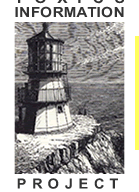ACCESSIBILITY CONCERNS
In 2005 and after, TIP will be working towards safer access for the chemically sensitive to public places such as health care facilities and airlines – utilizing successful models of protocols already in place in other locations.
WORKING WITH THE RI GOVERNOR’S
COMMISSION ON DISABILITY
We are working with GCD towards safer access for the chemically sensitive to public places such as health care facilities and airlines – utilizing successful models of protocols already in place in other locations. The first step was a Special Forum on August 23, 2005, to hear about the health problems and concerns of those who have experienced health effects in the workplace, housing and elsewhere from common chemicals. TIP Director Liberty Goodwin will be participating in a working group to discuss and propose possible responses and solutions, whether regulatory, legislative or other.
RESPIRATORY DISORDERS: THE RHODE ISLAND ASTHMA CONTROL COALITION
Coordinated by the American Lung Association RI, this coalition is working on the RI Asthma Control Plan to help people with asthma reduce their exposure to environmental triggers in the workplace, housing and schools. TIP’s membership and service on the School Advocacy Committee means we have a unique opportunity to network with health and school professionals, state agency people and organizations, parents of children with asthma, and asthmatic adults. We will be acting to see that chemical triggers of respiratory problems are better recognized by all. As a result of this connection, we have already been able to provide a TIP table at the Student Nurse Teacher’s Conference, and gave a talk on “Less Toxic, Lung Healthy Living” to a Better Breathers’ group.
One of our canary friends went to the hospital with symptoms of appendicitis. She quickly realized the other life-threatening health problem at the hospital, fought her way back out of the hospital and took her chances at home. She lived.
TIP believes that canaries should, and often don't, have access to hospitals. A few hospitals now have protocols for dealing with chemically sensitive patients. Others have no clue. We believe that all people should have inalienable rights. We want to publicize, and organize around, as many toxic air accessibility issues as our energy permits. For now we must pick our targets carefully.
--Paul Klinkman, TIP Webmaster & Board Member











